Every year, over one billion international tourists pack their bags to go on holiday, creating millions of jobs and investment for national and local economies. But decades of ever-expanding mass tourism are taking their toll on the environment.
According to figures from the UN’s World Tourism Organisation, tourism is responsible for about 5% of CO2 emissions – with increased storms and heatwaves, desertification, fresh water loss, rising sea levels that threaten coastal resorts, and diminished snowfall in alpine skiing areas.
Almost 25 years since the Earth Summit in Rio de Janeiro first floated the idea of sustainable tourism, it is clear to world leaders that a fundamental change is needed in the way we approach the whole concept of travel. This is one of the reasons why 2017 has been designated by the UN as the International Year of Sustainable Tourism.
Bodies like UN’s World Tourism Organisation are doing their best to help change the lives of local communities, but as tourist demands grow, it is increasingly recognised that a more robust and environmentally friendly infrastructure is needed to support the needs of both the tourism industry and local communities without causing more damage to the planet.
A global commitment
In 2010 the European Commission officially committed itself to promoting the development of sustainable, responsible and high-quality tourism. That commitment is now a global one.

The World Tourism Organisation is working with governments, public and private partners, finance institutions, UN agencies, NGOs and other international organisations to build a more sustainable tourism strategy – combining policies for inclusive and sustainable economic growth, employment and decent jobs with real concern for fragile ecosystems increasingly at risk.
During the 70th Session of the UN General Assembly in 2015, 154 heads of state agreed the 2030 Agenda for Sustainable Development, along with 17 Sustainable Development Goals – an ambitious far-reaching framework designed to ease poverty, protect the planet and ensure prosperity for all – particularly those in low-income tourist destinations.
From its first tentative steps in the 1990s, the concept of sustainable tourism has been wholeheartedly supported by the co-operative movement. CECOP–CICOPA Europe, the European branch of CICOPA (the international confederation of industrial and service co-operatives), is one of the most vocal champions of sustainability.
Related: Co-ops commit to sustainable development goals
In December 2013, more than 1,000 worker and social co-operatives from the CECOP–CICOPA Europe network involved in activities linked to tourism celebrated European Tourism Day. Their vision for a more sustainable and responsible tourism was founded on the co-operative business model, offering a more sustainable and responsible tourism combining economic competitiveness with solutions to social and environmental needs.
Co-operative solutions
One of their most innovative ideas was Cooproute – a travel itinerary mapping the rich field of cultural and industrial co-operative tourism in various European countries. Aimed particularly at young people, the route highlights important destinations illustrating the history of co-operative culture and values, from artisan co-ops producing traditional textiles to iconic locations such as the Rochdale Pioneers Museum on Toad Lane. Cooproute has the ultimate ambition to be recognised as a European Cultural Route by the Council of Europe.
In October 2016, Bruno Roelants, secretary general of CECOP, took part in the World Social Tourism Congress organised by the International Social Tourism Organisation in Zagreb.

“Given its potential, tourism should develop its capacity to generate benefits for the whole society in fields such as employment, wealth generation, culture, sustainability and environment,” said Mr Roelants, who is also secretary general of CICOPA.
“Thanks to their enterprise model, Cooproute destinations are already offering a sustainable and innovative tourism experience in Europe.”
The co-operative business model is also particularly suited to challenges and changes which respect and reinforce the local community in tourist areas as well as the stronger involvement of all citizens in tourist initiatives, building environmental sustainability and accessibility for everyone.
Across the world, the co-operative tourism market is offering a growing variety of more responsible and sustainable experiences for tourists. These range from real adventure in little-known destinations to volunteering in local communities and helping them build on their local heritage be it farming, industry or artisan crafts unique to local communities.
Midcounties and the Travel Foundation
Midcounties, the largest independent co-operative in the UK with gross sales of over £1.4bn, still operates a travel business under the Co-operative Travel brand. Despite challenging times for the industry, it is the third largest travel agent in the UK, with 56 shops, 150 home-based personal travel agents and 40 independent agents who are part of a consortium set up several years ago.
Group manager for travel services, Alistair Rowland, says: “Midcounties did not join the joint venture between Thomas Cook and the Co-operative Group five years ago. What we have been doing is building and increasing our share of the market from a £70m to a £350m turnover.”
Mr Rowland explains how the travel business is a run in a “very ethical way” – in part through operating to a set of goals they have set around social responsibility.

“We do a lot of work with the Travel Foundation charity, which in the last 10 years has raised over £10m for sustainable tourism. We support it in a number of ways. For instance, through support of many of the projects they carry out across the world, through advice on business growth, for example.”
Mr Rowland, who is a director and trustee of the foundation, as well as chair of the finance committee, says that it is also about doing practical things that are real to local communities.
“It’s quite a complex area. For example, lots of the sustainable tourism work that is carried out in a typical resort is quite political – such as how a hotel deals with its waste, which may involve local government, or NGOs who try to do the best for travellers while growing sustainable tourism in a resort.”
One of the Travel Foundation’s most successful initiatives is Much Kaab in Mexico, a co-operative of Mayan women, who produce honey-based products while looking after the endangered Melipona bee. The co-op has launched a new range of natural toiletries and after-sun products for sale in exclusive hotel rooms, souvenir shops and other outlets, with a three-year business plan for growth.
“It started with a small group of local beekeepers in a rural village,” says Mr Rowland. “The Travel Foundation helped them form a co-operative and provided business and marketing training. The women have developed a brand and successful beauty products, which have taken them into 11 resort hotels.
“This is a great project which started small but has now enabled new phone lines and internet to be installed in the village, meaning they can start developing the product even further.”
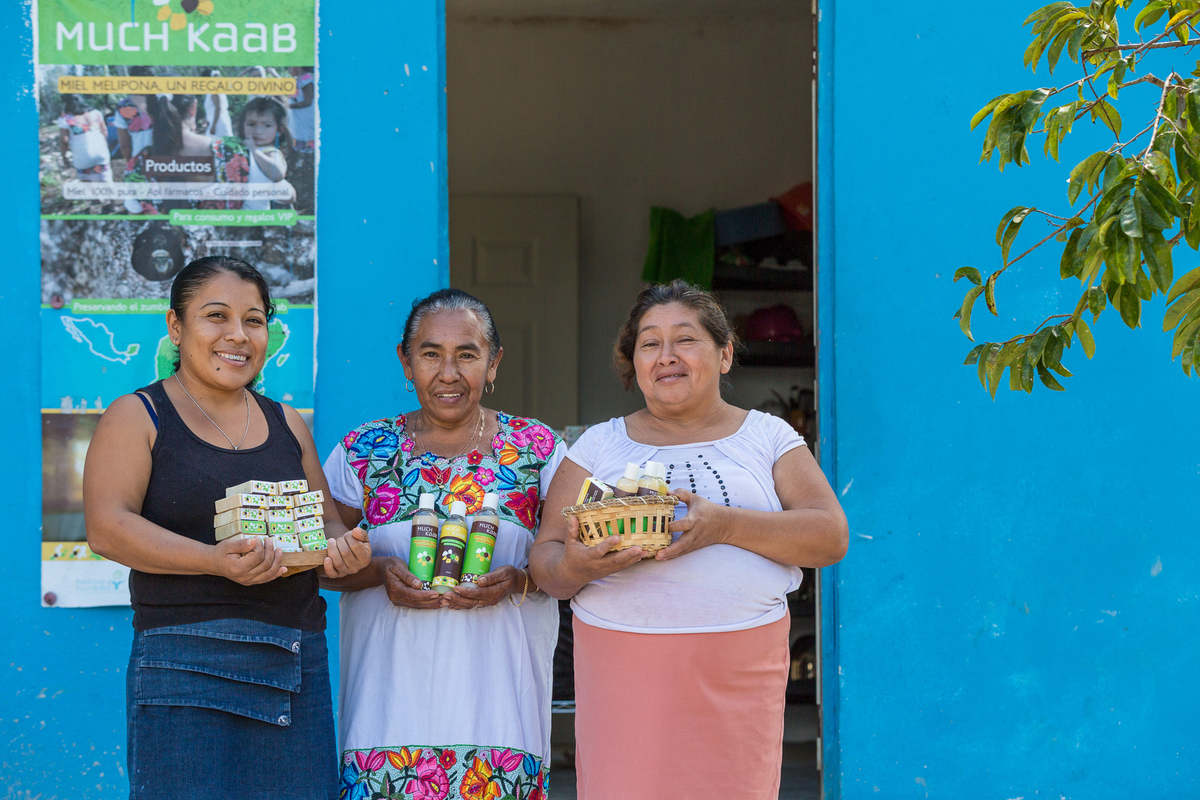
Another Travel Foundation project in Turkey aims to help local farmers supply fruit and vegetables to all-inclusive hotels.
In Montego Bay, the first group of Jamaican craft traders has completed a training programme helping locals increase their income and improve the visitor experience by changing the way they sell their goods.
There is also invaluable work going on to preserve the threatened marine bays around Fethiye in Turkey – with an educational map for tourists around best practice – reducing the environmental impacts of boat trips and coastal tourism on important habitats for turtles and other marine life.
An adventure in sustainability
The team at Midcounties is keen to monitor its contribution to increasing sustainability while offering customers different kinds of holidays.
“We compare the environmental impacts of different types of holiday, from adventure tourism to beach holidays, all-inclusive to self-catering,” says Mr Rowland. “We also measure our financial performance on a steering wheel looking at all our ethical areas.”
Midcounties also offers the opportunity to travel on trips with G-Adventures, a social enterprise which has specialised in sustainable travel for over 20 years and financed a raft of projects including community-operated restaurants in Cambodia and a business school run by a women’s co-op in Tanzania. Opportunities include stays with local families, desert trips and the chance to help build schools and other much-needed facilities in developing countries.
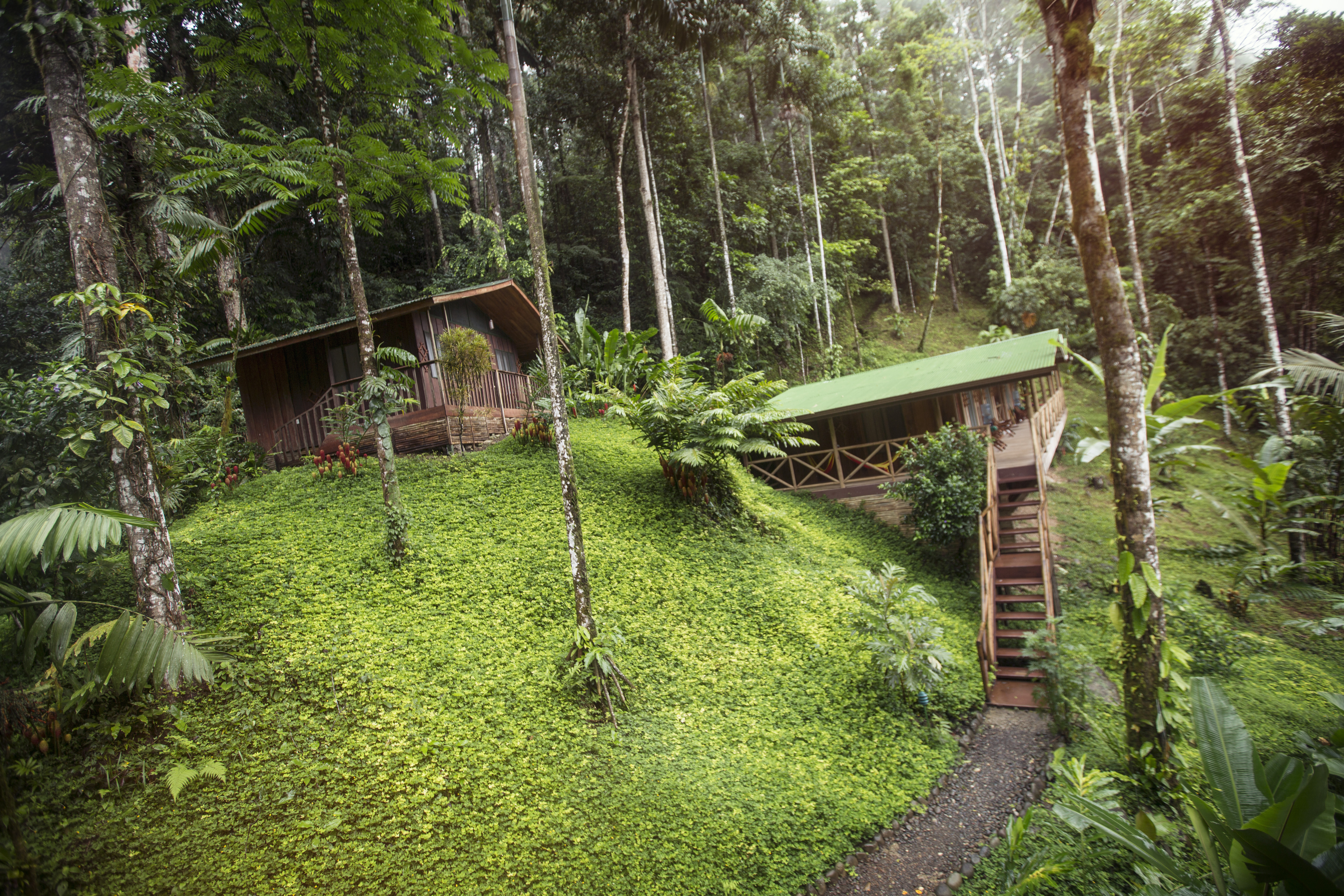
including Costa Rica (Image: G-Adventures)
Midcounties also aims to raise awareness of sustainable travel – recently publishing a leaflet in a scrapbook format for young travellers focusing on the need to conserve energy and how to do it in far-flung holiday resorts.
“We are a retailer with a conscience and want to spread the message,” says Mr Rowland.
“In our energy business we have a green tariff which benefits recyclable energy and one of the things that we do with that is make a contribution to the Travel Foundation.
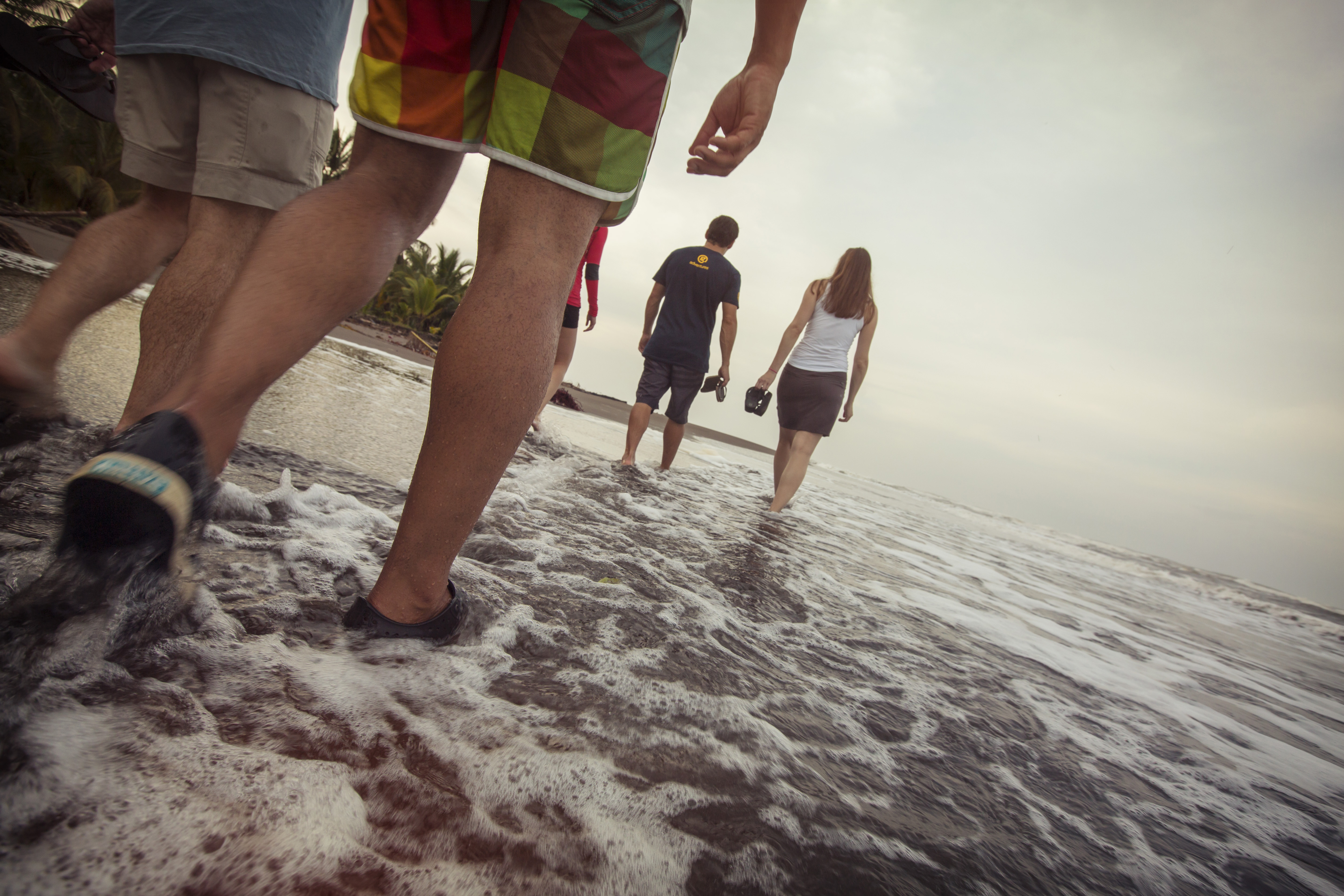
“We are also promoting a member offer where we will get a number of members together to take them on a G-Adventure holiday.”
He believes that co-ops are in a good place to champion the idea of sustainable travel. “Sustainable tour operators are out there but sometimes they are not easy to spot,” he says.
“Our place here at Midcounties is to aggregate all that on our website and have a proper presence for sustainable tourism as one of our points of real difference. It is about getting the message in front of the consumer and maximising the offer so we are the agent of choice when it comes to ethical travel.”
Co-ops working in sustainable tourism
Lupine Adventure
Lupine Adventure Co-op offers walkers, youth workers, schools and community groups the chance to learn expertise and safe techniques with qualified mountain guides.
There are affordable courses in everything from rock-climbing, basic hill walking and map reading to tuition for Duke of Edinburgh award schemes at all levels. It was started some years ago by individuals with a background in environmental and social justice projects.
A member of Co-operatives UK, Lupine is keen to promote the use of public transport and lift sharing in all its outward bound courses. If possible, all Duke of Edinburgh Award expeditions start and finish at railway stations.
Interestingly, it no longer promotes the Three Peaks event in Yorkshire because of the adverse effect on the environment.
Lupine gives its time free to organisations like the Woodcraft Folk. It has six full-time members based in North Wales, Yorkshire, Cumbria and Scotland as well as a team of freelance mountain guides. Members also take part in conservation projects such as tree-planting.
SENINTER
One of the newest and most unusual initiatives in sustainable tourism is SENINTER, a joint project from several organisations (including co-ops) from Slovenia, Italy, Belgium and Spain.
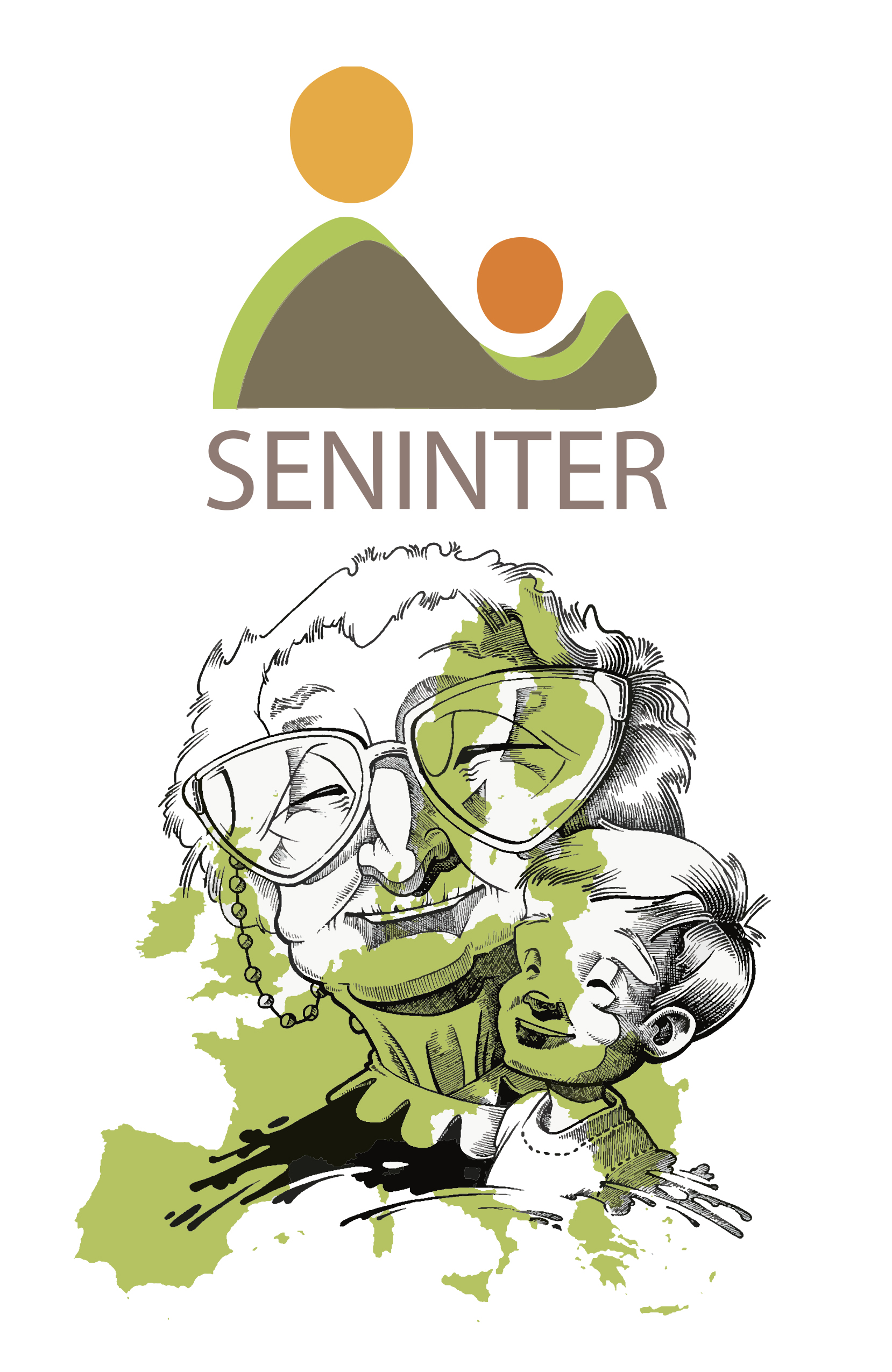
Under the first travel initiative, grandparents and grandchildren from Slovenia will travel to the coastal resort of Rimin, in Italy, where they will meet Italian grandparents and children who will show them the beauties of the coastal region and share very different experiences and cultures.
The stated aim of the new project is inter-generational empowerment, building community bonds and links with other countries. Its mission is ‘not just a journey but also a legacy’ which young people will always remember. Grandparents will be travelling with their grandchildren during the low and medium season in Europe.
Other partner organisations in Belgium and Spain are also set to take part in this innovative idea that is designed to build bridges across generations. It has been funded by the financed by the European Commission and if successful it will be rolled out across Europe.
Ecoinstitut
Barcelona-based Ecoinstitut was set up as a co-operative in 1999 and has played a leading role in several major projects designed to promote sustainable tourism.
Since 2000, the Catalan government has worked with local government and tourism organisations, as well as hotels and local businesses, to improve the sector’s environmental impact through eco-certification and Ecoinstitut contributed to that.
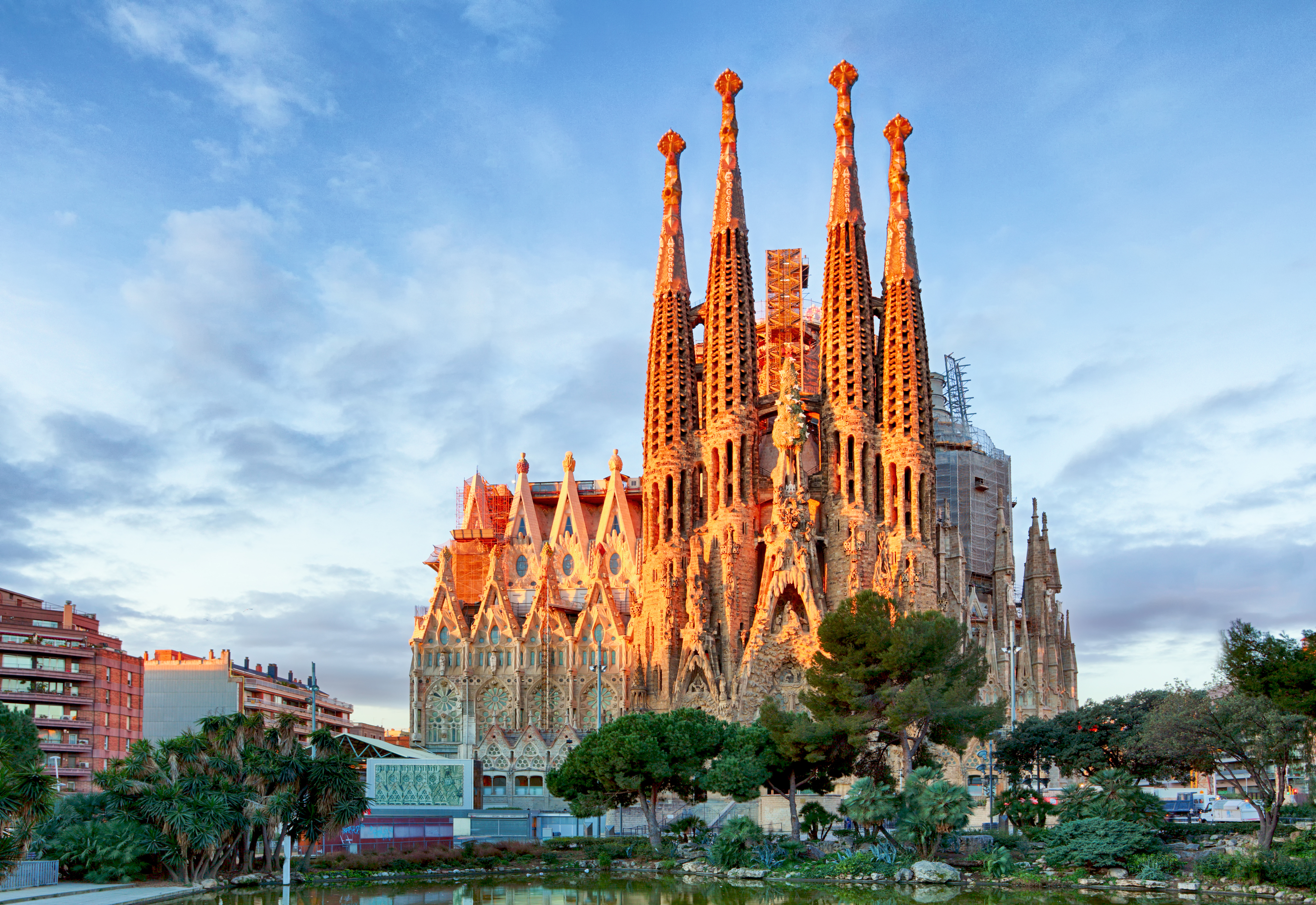
A major project was the implementation of the Catalan Ecolabel quality standard, preparing case studies and conducting the evaluation of youth hostels and rural accommodation facilities.
Ecoinstitut also works with leading PR and advertising companies to raise awareness and develop information material for tourist facilities.
In 2008, to help advance the implementation of Barcelona’s Agenda 21 eco-initiative, they were tasked with developing a guide to sustainable hotels with the collaboration of Barcelona Tourism and Barcelona Hotels Association.
Other projects include guides to ethical surfing in the beaches around Barcelona.